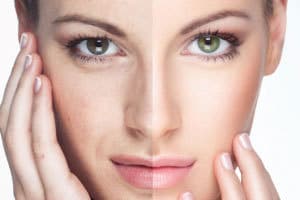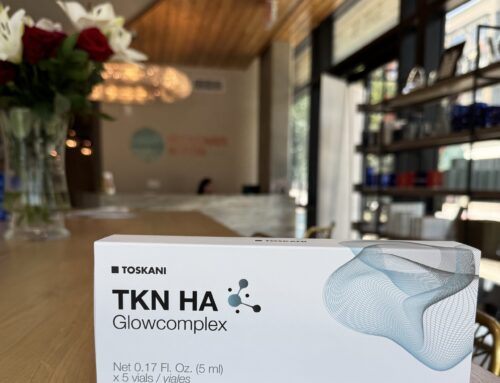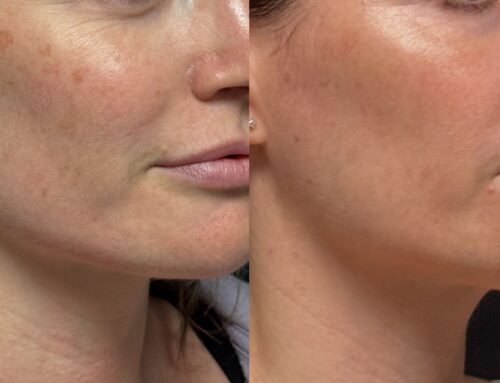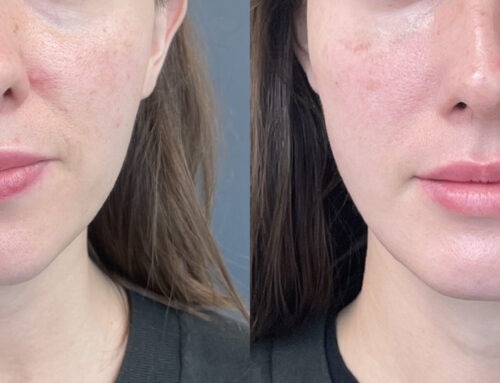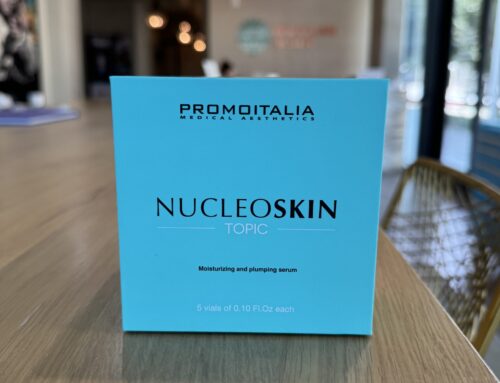Let me begin by saying, this stuff is super complicated!! If you are overwhelmed with choosing skincare, it is no wonder with all the information out there. I have a bachelor’s degree in chemistry and it is still cumbersome. Modern skin care companies are putting millions of dollars into research and development and the results can be amazing. Some things are hype and some are necessities. I have made you a quick reference guide below. I am always happy to see you in consultation to help you choose what is best for you. This should help!!
Let’s start with my beloved Vitamin C. Many clients ask me, “What’s the best thing for my skin?” and I always answer “Vitamin C!!”. I often tell clients it is more important than sunscreen. It is the workhorse of anti-aging compounds. Many clients get excited about retinol and chemical peels and Botox, but they don’t give Vitamin C its due glory. Vitamin C is absolutely essential for collagen production. It is the cofactor for the enzymes that stabilize collagen (procollagen to collagen synthesis) and cross-link it. If you are doing things like micro-needling or Ultherapy, you had better be putting Vitamin C on your skin to get the full effect. The second big job for Vitamin C is free radical scavenging. Every skincare rep and aesthetician throw that phrase around, so let’s look a little deeper. When skin is exposed to UV light, reactive oxygen species (ROS) form that causes cellular damage including DNA damage. They cause an increase in matrix metalloproteinases (MMP), which in turn degrade collagen. Vitamin C is very efficient at neutralizing ROS, as are other antioxidants. The term “antioxidant” is in reference to the neutralization of ROS. There are many strong antioxidants, but Vitamin C is a superstar among them.
Next, a non-toxic good sunscreen is a necessity. You want a “physical” block, not a chemical one. In other words, zinc and titanium are minerals that create a physical barrier to UV radiation. They are the main ingredients in sunscreens created for babies. Many chemical UV filters can cause skin irritation and an increase in acne. Even worse, they can mimic hormones and wreak havoc on your endocrine system. These chemical sunblocks absorb into the bloodstream and can be found in your blood, breast milk, and urine. The most concerning one are oxybenzone. With hormone imbalances on the rise, it makes sense to protect your endocrine system like you protect your skin and heart health. So much media is dedicated to heart health. We need to remember our endocrine system and our skin in these efforts to live healthier lives.
The copper peptide also helps with collagen production and just like Vitamin C, is an antioxidant. It is a necessary ingredient to promote the removal of damaged collagen and increases cell turnover in the skin. This is another key player we use when micro-needling software project tracking. Ultherapy and Laser resurfacing clients benefit greatly from this ingredient as well.
Alpha-Lipoic Acid is a strong antioxidant that is both water and lipid soluble. This is a very important quality when looking at the anatomy of the skin. The dual solubility allows this antioxidant to reach every layer and cell of the skin. ROS are neutralized and DNA is repaired, leaving skin less sun-damaged and protected from future damage.
Retinols deserve their own blog for many reasons. There are many forms and many ways to prescribe them. They have a lot of hype and are often misused. Retinol is a collective group of many forms of Vitamin A. It stimulates fibroblasts, the cells that make collagen and decreases MMPs. As stated above, MMPs degrade collagen. You don’t need to use so much retinol that you are inflamed and peeling as inflammation can be bad for your collagen. You do need some Vitamin A though. This is tricky enough that I am currently writing another blog to address retinol.
Growth Factors are sexy in most of the higher-end products. The research is still not complete on a lot of these. Are they stable and active? Are they truly increasing cell turnover and collagen production? This too deserves its own blog. It is unlikely growth factors will hurt you, but little is known at this point.
There are lots of acids out there that increase cell turnover and provide a chemical exfoliant. Examples of these are alpha hydroxy acid and beta hydroxyl acid (salicylic acid). These get rid of dead skin cells and allow your active ingredients to penetrate a lot better. They can help the appearance of your skin and reduce acne.
This is just the start of my favorites. Stay tuned for more nerdy skin care advice!!

